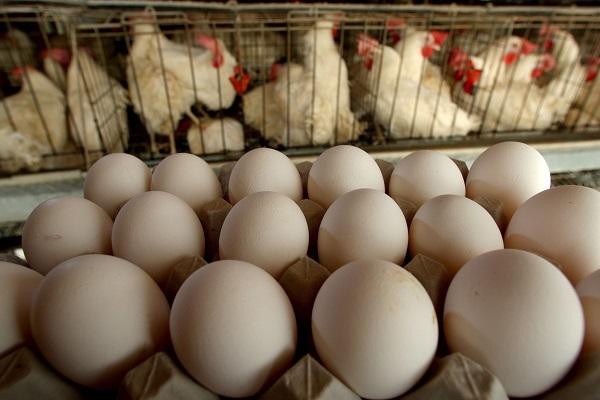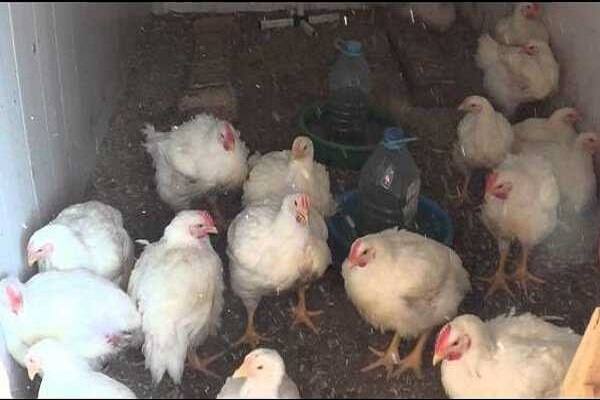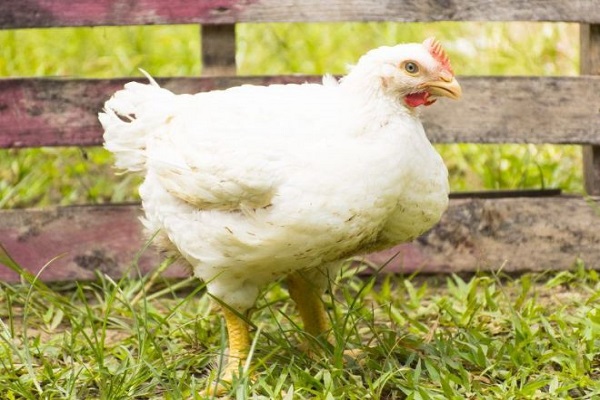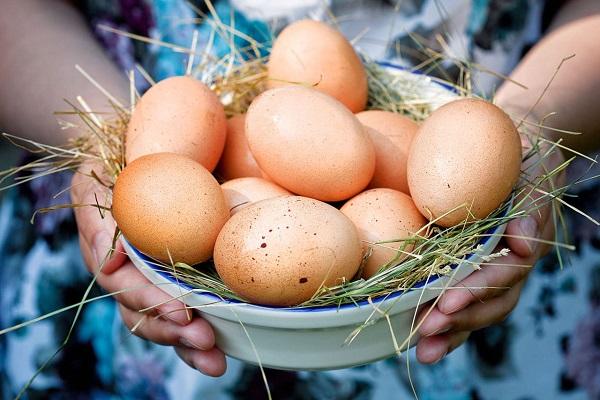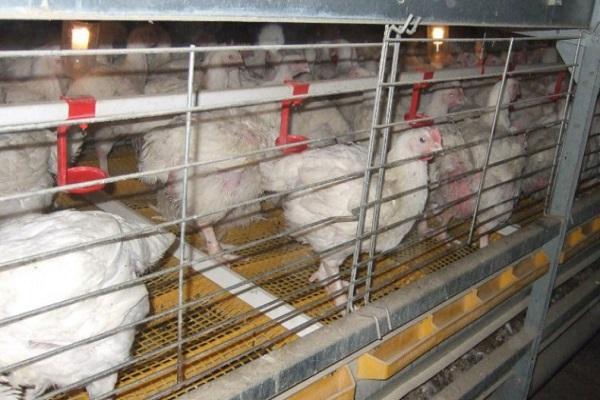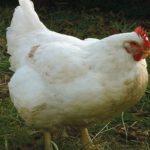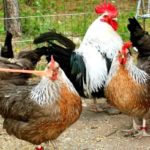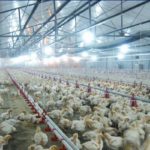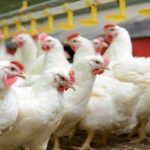Broilers are bred to produce tender chicken meat in the shortest possible time. Breeders have bred a special breed of chickens that gains weight in a record 1.5-2 months. The meat is fragrant, juicy and with fine fibers. Those who are thinking of breeding such birds inevitably wonder whether domestic broilers lay eggs and whether the breed can be used to produce all types of chicken products.
Do broilers lay eggs at home?
Broilers obtained by crossing two breeds (Cornish and Plymouth Rock) were conceived by breeders in order to quickly obtain a carcass of maximum weight. Chickens rapidly gain weight and at the age of 1.5-3 months go for meat, weighing 1.5-4 kilograms.
Broiler breeds begin to lay eggs later than regular chickens, no earlier than 7-9 months, and the taste characteristics of the meat become worse. Productivity also leaves much to be desired - 2-3 eggs per week.
The eggs are much larger than usual, as they have a mutation - 2 yolks. Due to their large size, they often get stuck when passing through the oviduct, and chickens need help. The offspring from two-yolk eggs are practically not hatched or are greatly weakened.
To summarize, we can say that you can get eggs from broilers in small quantities, and also later than from real layers. When the owner decides to slaughter the bird, the quality of the meat will be low and not the same as that of a young broiler.
How to get eggs from broiler chickens
In home poultry houses, owners try to get both products from chickens. Especially for such purposes, breeders improve broiler breeds, creating crosses with an expanded set of advantages.
Crosses with improved egg production qualities and viable offspring have been bred - ROSS-308, ROSS-708, Smena-8, Gibro-6, Broiler-M. These broilers begin to lay eggs at 5-6 months. They produce 150-180 eggs per year.
To make broilers lay better, you should:
- maintain a balanced diet;
- carefully monitor the conditions of detention;
- It is necessary to monitor the bird, as large laying hens have difficulty releasing eggs.
Owners should also remember that even if they manage to hatch a chicken, it will not inherit its parental properties.Broiler qualities are not transferred.
Important: vaccinations and special nutrition designed for broiler breeds help to avoid diseases.
What's good about their eggs?
Eggs obtained from crosses are impressive in size - 60-65 grams. A double yolk is always present, which is very rare for simple layers.
For food
Eating is the main way to use broiler eggs. The taste of the products is excellent, not inferior to ordinary ones. Studies have shown that the beneficial properties are also maintained.
Due to their significant size and difficulties in passing through the oviductal canal, the shells may crack. Therefore, before storing, the integrity should be checked, the shell should be wiped with a rag, and dirt and accumulated debris should be removed.
For incubator
During the selection process, the parental properties of the crosses were lost; broilers do not hatch. Their offspring can only be bred in an incubator. The eggs are collected and stored at temperatures up to 18°. Recommended air humidity is no more than 80%.
The process of hatchery breeding crosses is complex, but the chickens will be without the ability to quickly gain weight, that is, they are not broilers. Experienced poultry farmers prefer to buy ready-made chickens, since independent breeding of crosses is impossible.
Features of collection and storage
Sedentary chickens often peck, stain or crush eggs, so they collect the produced product twice a day. It is better to do this after the first feeding and in the middle of the day.
When collecting, try to hold the eggs less in your hands so as not to damage the protective shell. Store products in a cool place.
It is better to consume the eggs within 5 days, as the quality steadily decreases in the future.
Specifics of keeping broiler egg-laying chickens
Those who decide to combine the production of meat and eggs from broilers need to know the basic rules for caring for poultry:
- It is important to provide chickens with a balanced diet - lots of greens and shells.
- Feeding in small portions 3 times a day.
- Laying hens are not allowed to sit constantly - they are encouraged to move more. This makes it easier to release.
- Do not overfeed - the bird is prone to obesity.
- Monitor their health - broilers often get sick, as they are bred for a short period of life. They protect the bird from drafts, maintain cleanliness in the room and air humidity.
- If the chicken is lethargic or, conversely, too restless and does not eat for several hours, the cause may be a stuck egg. To facilitate exit, laying hens are given a light abdominal massage prophylactically.
- So that chickens can form eggshells, foods containing calcium are added to the feed - vitamins, chalk, shells, crushed shells.
When keeping broilers, you need to maintain a complete diet that helps the chickens quickly gain weight and lay eggs well in the future..
Raising crosses is not easy. It is better to buy chickens from well-known, well-established breeders. Many people do not combine the production of meat and eggs at home - they raise laying hens and broilers separately. In any case, you need to carefully select breeds and listen to the advice of experienced poultry farmers.

